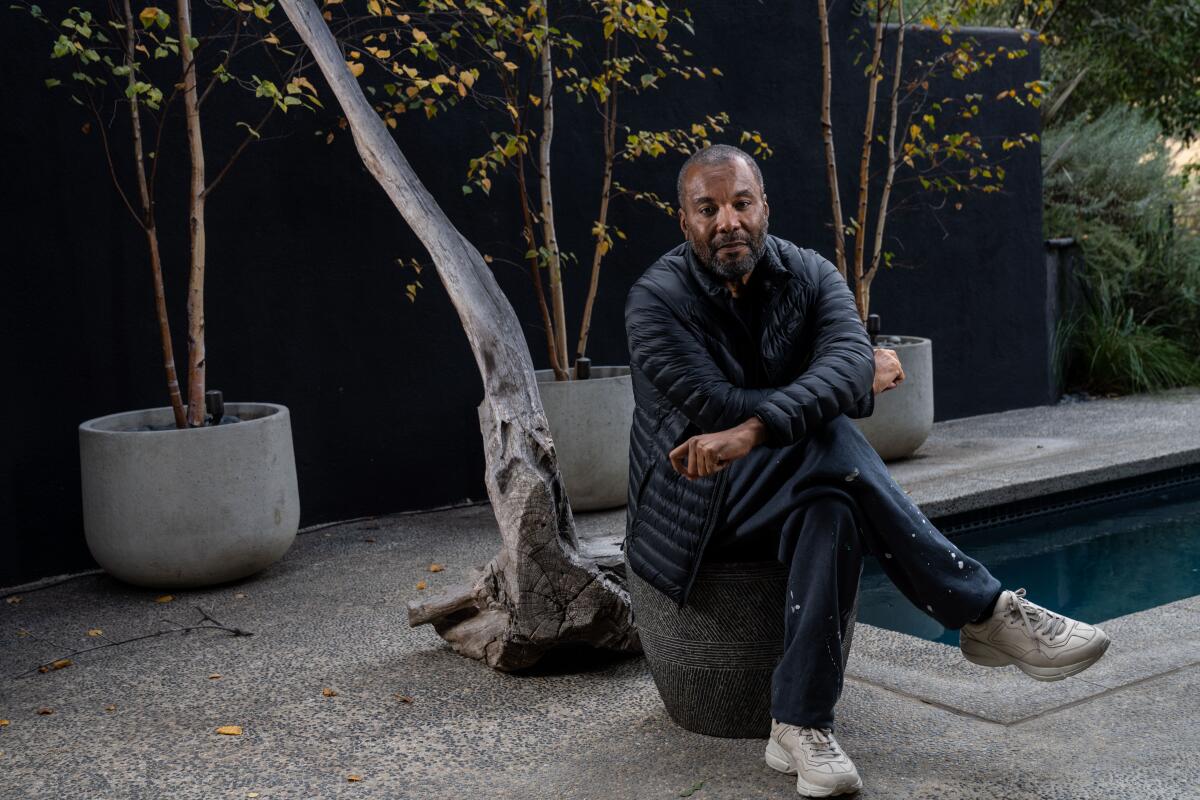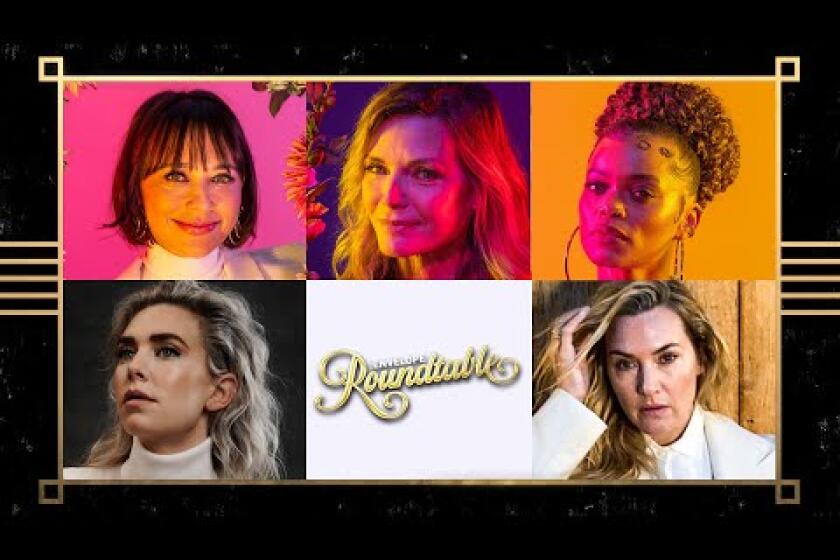Director Lee Daniels was determined to bring Billie Holiday’s story to a new generation

- Share via
Lee Daniels was 13 years old when he first saw the Billie Holiday biopic “Lady Sings the Blues.” The film featured Diana Ross as Holiday and Billy Dee Williams as Louis McKay, her husband from her final marriage. Daniels had never seen a Black couple in love or a depiction of a booming Harlem on screen before. It left such an impression on him that it sparked his dream of becoming a filmmaker.
Decades later, however, Suzan-Lori Parks’ script for “The United States vs. Billie Holiday” was sent his way for consideration. Much to his surprise, he discovered that his beloved “Lady” from decades back had left out a significant portion of the legendary singer’s life.
“I found out that that wasn’t the real story, that Billie Holiday was a civil rights leader, that she wasn’t just a drug addict or a jazz singer,” Daniels says. “[Her signature song], ’Strange Fruit,’ kicked off the civil rights movement as we know it. When you think of civil rights leaders, you think of Malcolm X, you think of Martin Luther King. And to me, civil rights leaders come in all shapes, sizes and complexities.”
This modern retelling of Holiday’s story, which releases later this week on Hulu, is based on “Chasing the Scream: The First and Last Days of the War on Drugs,” Johann Hari’s 2015 nonfiction book that chronicles the unsung early victims in America’s war on drugs. Because Holiday’s song “Strange Fruit” spoke so powerfully to lynching and systematic oppression of Black people, the FBI immediately deemed her a threat.
The agency put her under surveillance with agents such as Jimmy Fletcher (portrayed by Trevante Rhodes in the film) even posing as romantic suitors. Like many civil rights figures of the 20th century, the agency was obsessed with silencing her and by almost any means necessary. In that respect, her long battle with heroin became her Achilles heel in her battle against the federal government.
In order to bring Holiday’s legacy to a new audience, Daniels had to find the right actress to portray her. He eventually chose Grammy-nominated singer Andra Day. Despite her vocal talents, Daniels wasn’t initially interested because of Day’s lack of acting experience. Daniels recalls, “When I did finally meet with Andra, she just inhabited the spirit of Billie Holiday, and I forgot that’s what I do best; I work with first-time actors.” (Notably, Daniels directed Gabourey Sidibe to an Oscar nomination for her acting debut in “Precious.”)
Michelle Pfeiffer, Rashida Jones, Kate Winslet, Vanessa Kirby and film newcomer Andra Day gather (virtually) to talk nerves, women’s stories and the trick to lengthy careers.
“Her acting coach, Tasha Smith, smartly sent me this moment of her getting ready and getting into character,” Daniels says. “And it wasn’t acting, it was being, it was the soul and the spirit of Billie Holiday inhabiting this woman’s body, and it was pretty miraculous. And so I sort of knew in that moment, without even seeing her audition, that she was the woman to play the role.”
Daniels was surprised how in sync he and Day were over the course of the production. He refers to their collaboration as a tango except sometimes he would lead, sometimes she would. When it came to a key sex scene, Daniels admits he was terrified of going forward with it. But it was Day who took the lead insisting they shoot it.
“I thought it was important to tell the story that Billie only understood a certain type of sex, love if you want to call it that,” Daniels says. “I was really not going to shoot the scene. There’s something graphic about it, and she said, ‘Let’s do this, Lee. We have to tell Billie’s story. We have to tell Billie’s story.’”
After the events of 2020, where millions of people around the world took to the streets in cries for social justice, it might be easy to categorize “Billie Holiday” as timely. Daniels doesn’t necessarily see it that way.
“Listen, most of my family is incarcerated, and most of them unjustly so,” Daniels says. “So, whether you see this film today, whether you saw this last year, whether you see this film next year, it’s always going to be timely.”
He was affected, however, by a video clip he was sent during the protests over George Floyd’s killing. With planes overhead, smoke, masks and a mass of people there was a woman on top of a car singing “Strange Fruit.”
“Many kids were singing that during the time. You can’t make that up,” Daniels says. “So, no, I didn’t do it for the timeliness of it all. You never do anything for the time. For me, I do it because it’s what I’m living right now. I mean, timeliness is for politicians. I think people are trying to make a statement. I’m just doing it. I’m just telling stories that are about my life or my family’s lives, because those are the only stories I know how to tell.”
More to Read
Sign up for The Envelope
Get exclusive awards season news, in-depth interviews and columnist Glenn Whipp’s must-read analysis straight to your inbox.
You may occasionally receive promotional content from the Los Angeles Times.








